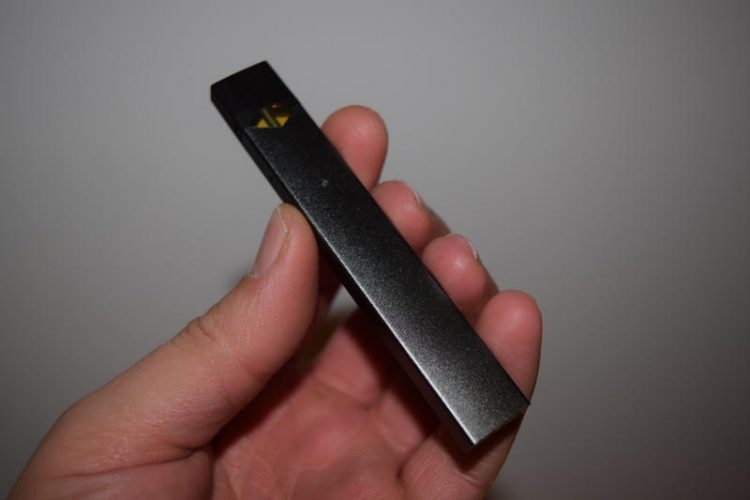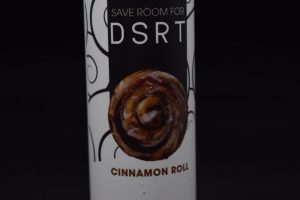Public Health Researcher Highlights the Absurdity of E-Cigarette Flavor Bans
Several US States as well as the Food and Drug Administration have already announced plans to implement bans on flavored e-cigarettes in an effort to protect youth from becoming addicted to nicotine. In a recent op-ed for Inside Sources, Michael Siegel, a professor of Community Health Sciences and tobacco control expert, highlights both the hypocrisy of regulators and the absurdity of their approach.
 As you probably already know, the US is indeed facing teen vaping crisis, with recent surveys showing that a worrisome percentage of youths are using vaping devices, the most popular of which is the JUUL pod system. Most of them prefer tasty e-liquid flavors like candy or fruit, which has prompted authorities to crack down on flavored e-cigarettes in hopes of putting an end to this so-called “teen vaping epidemic”. Back in December, the city of Sommerset, in Massachusetts, voted to limit e-cigarettes and menthol cigarettes to the shelves of tobacco stores open only to customers 21 and older, and several states – including New York, California and Washington, D.C. – are mulling similar measures. To top it all off, at the end of last year, the FDA announced plans to ban enticing e-cigarette flavors in convenience stores and gas stations, restricting their sale to adult only stores.
As you probably already know, the US is indeed facing teen vaping crisis, with recent surveys showing that a worrisome percentage of youths are using vaping devices, the most popular of which is the JUUL pod system. Most of them prefer tasty e-liquid flavors like candy or fruit, which has prompted authorities to crack down on flavored e-cigarettes in hopes of putting an end to this so-called “teen vaping epidemic”. Back in December, the city of Sommerset, in Massachusetts, voted to limit e-cigarettes and menthol cigarettes to the shelves of tobacco stores open only to customers 21 and older, and several states – including New York, California and Washington, D.C. – are mulling similar measures. To top it all off, at the end of last year, the FDA announced plans to ban enticing e-cigarette flavors in convenience stores and gas stations, restricting their sale to adult only stores.
Prof. Michael Siegel calls this crackdown on e-cigarette flavors a classic case of “throwing the baby out with the bathwater”. You see, teens aren’t the only ones who prefer candy, fruity or dessert e-liquid flavors to tobacco ones. In fact, a recent survey found that 85 percent of adult vapers prefer flavored e-cigarettes, inducing 74 percent who use fruit flavors and 66 percent who love dessert or pastry flavors. The participants in this survey are just a few of the 2.5 million American former smokers who rely on electronic cigarettes to keep their nicotine dependency in check, and regulators are throwing them under the bus, Sure, they’re claiming the bans are necessary to “save the kids”, but are they really protecting them?
Several studies and surveys published in the last few years show that the rate of smoking among youth has gone down significantly, while vaping has become more popular. So basically, some of the kids who would have probably taken up smoking, are experiencing with vaping instead. No one is saying that that’s a good thing, but considering that objective scientific evidence clearly shows that e-cigarettes are considerably less harmful than tobacco cigarettes, I think we can all agree that it’s better than the alternative, smoking. As for the gateway theory, which claims that kids start to vape and then move on to smoking, that’s already been debunked numerous times.
So if states and the FDA move forward with e-cigarette flavored bans, how will these youth get their nicotine fix? They’ll have no choice but to quit like good little children, right? Well, probably not. You see, the bans announced by some US states and the FDA target flavored e-cigarettes and menthol tobacco cigarettes, but they don’t affect good ol’ plain tobacco cigarettes – you know, the ones we already know kill millions of people every year. You’ll still be able to buy those pretty much everywhere, and so will teens.
“Although these proposed laws would restrict the sale of menthol cigarettes, they leave entire shelves of non-menthol cigarettes unregulated and easily available. These are the very cigarettes that are the most prevalent among both youth and adult smokers.,” Prof. Michael Siegel write in his op-ed. “These laws will result in thousands of ex-smokers returning to cigarette smoking because the e-cigarettes they rely upon are taken off the shelves, while tobacco cigarettes remain. The absurdity of these proposals is that they restrict the sale of e-cigarettes more severely than the sale of actual cigarettes, the ones that are killing more than 400,000 Americans each year. Why would regulators want to give a competitive advantage to cigarettes over the much safer alternative?”
So forget about supporting e-cigarettes as a less dangerous alternative to vaping, lawmakers don’t even want to level the playing field and allow vaping products to compete against tobacco cigarettes. They are virtually saying that they’d rather have vapers go back to smoking than treat all tobacco products equally. Why restrict only flavored e-cigarettes and menthol cigarettes to adult-only shops, while allowing plain tobacco cigarettes to be sold in convenience stores and gas stations? How does that make any sense from a public health standpoint?
“While e-cigarettes may not be a perfect product, the research consistently shows that they are far safer than traditional cigarettes. And a clinical trial published recently in the New England Journal of Medicine showed that vaping products are not only helping smokers quit, but they are twice as effective as the nicotine patch,” Michael Siegel writes. “By creating barriers to a much healthier product, these laws will simply force former smokers to return to cigarette smoking. Lawmakers are doing a huge favor not for the public’s health, but for Marlboro, which is going to see a windfall in the ex-smoker market as all of its competition from vaping products and most of its competition from the No. 2 brand (Newport) is eliminated.”
It’s not like teens didn’t become addicted to nicotine before e-cigarettes, they just took up tobacco cigarettes instead of vaping. As Prof. Siegel points out, if regulators really wanted to protect kids, they would have restricted all tobacco products to adult-only stores, instead of discriminating against flavored ones. Personally, I don’t think that would have been ideal either, as it makes accessing vaping products much harder for the ex-smokers who really need them, many of whom will probably turn to the black market. That opens up a whole new can of worms, with counterfeit and potentially dangerous products.
I say level the playing field instead of banning certain products and just make sure that age restrictions are actually enforced. Fine businesses who sell to minors up the wazoo, jail offenders for all I care, just don’t push millions of people in the arms of Big Tobacco for no good reason.

















